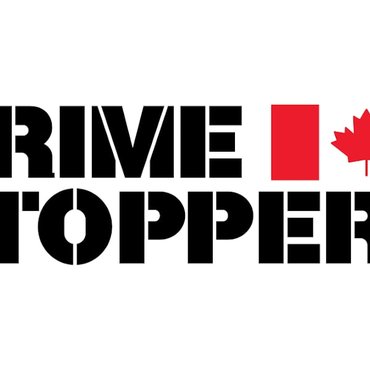People arrested for a first-time criminal offence in Canada are often bewildered by the criminal trial process. The criminal court system is like a world unto itself, with its own distinct procedures, key personnel, and plenty of legal terminologies. Anyone who hasn’t had to navigate a criminal court and is unfamiliar with the law is bound to be a bit confused.
However, the Greater Toronto Area criminal defence lawyers at Mass Tsang will tell you that the Canadian criminal trial process is straightforward and relatively easy to understand if described by stages. We will detail these stages in this blog, hopefully preparing the uninitiated for what to expect as they work through the court system. And, if you haven’t secured the services of a competent criminal defence lawyer yet, we strongly encourage you to do so. An experienced criminal defence lawyer can help you navigate court procedures, review all case elements, and strategize the best defence to secure the most favourable outcome possible. Ontario’s
Mass Tsang criminal lawyers
have successfully defended thousands of clients and stand ready to help you mount an effective criminal defence.
Criminal Case Basics
The criminal trial process is guided by criminal procedure rules developed and modified over time by common law, the Canadian Criminal Code, legal precedents, the courts, the Charter of Rights, and provincial law. The primary objective of criminal law procedure is to ensure that the process for determining guilt or innocence in criminal cases is fair and just. As such, in addition to guiding the criminal trial process, procedure rules also cover how police can lawfully investigate crimes, which covers such actions as surveillance, interrogations, searches, evidence, and the arrest itself.
Based on criminal procedure, the criminal trial process is essentially the same throughout Canada, though there are some subtle differences between provinces. Criminal offences in Canada are categorized as either the more serious “indictable” or less serious summary conviction offence. Some offences are classified as “hybrid,” as the Crown determines which category to use when officially laying charges.
Summary conviction offences are usually tried in a lower court before a magistrate, judge, or justice of the peace. These offences typically carry a maximum punishment of a $2,000 fine or six months in prison, though the absolute maximum is two years less a day.
Depending upon the severity of the crime, indictable offences may be heard by a magistrate, high-court judge, or jury. A conviction for an indictable offence often results in more severe penalties than the maximum allowed by summary conviction offences, with some crimes carrying a maximum of life in prison.
The Eight or Nine Stages of the Criminal Trial Process
The criminal trial process in Canada can typically be broken down into eight primary stages, which are:
-
Arrest
-
Release
-
First Appearance
-
Disclosure
-
Crown Pre-Trial
-
Judicial Pre-Trial
-
Trial
-
Verdict and Sentencing
Depending on the elements of your case and its process through the stages, your criminal trial process may not need to avail itself of all stages. For example, your lawyer and the Crown may be able to negotiate a favourable outcome that negates the need for a trial. Or your lawyer may be able to expose flaws in the Crown’s case that makes them drop the charges.
A criminal trial for severe crimes often involves a ninth and separate stage for those facing pre-trial incarceration. While police typically release criminal suspects arrested for low-level offences, those charged with more severe crimes usually must contend with Ontario’s judicial Interim release (bail) process. An experienced
bail hearing lawyer
may be able to negotiate release without a contested bail hearing. However, those who must face a bail hearing are essentially subjected to a separate trial to determine whether they can be released pre-trial.
Arrest and Release
Whether by warrant after an investigation or during an alleged crime, your arrest marks the start of the criminal trial process. And at this juncture, the best advice we can give you is to invoke your Charter Right to keep silent until you’ve spoken to a criminal Defence lawyer. If you’re a first-time offender and the charges are not too serious, police have several options for releasing you without needing a bail hearing. When released, the police will issue you one of several notices detailing the conditions of your release and the date, time, and place of your first court appearance. Perhaps, needless to say, failing to show up for that first appearance is a criminal offence.
What to Expect at Your First Appearance
Your first appearance is primarily an administrative function used to determine how your criminal case will proceed. You can inform the court whether you plan to plead guilty or not guilty, or request adjournment based on not yet having a lawyer and/or having disclosure of the Crown’s evidence and its case against you. Because the Crown usually provides disclosure during the first appearance, telling the court you plan to plead guilty at this juncture is premature. If you do inform the court that you intend to plead guilty, the judge will typically set a new date for entering your plea. This gives defendants time to prepare materials—personal information, reasons behind the criminal act, any remedies taken to correct the crime, etc.—designed to mitigate the severity of the court’s ultimate sentence.
Pretrial Preparation and Negotiations
Before trial, you and your lawyer will review the Crown’s disclosure and strategize your defence strategy. If your lawyer feels that police and Crown have failed to provide all disclosure, they will request further disclosure from the Crown and, in some cases, need to petition the court to resolve disputes about full disclosure.
When ready, your lawyer will schedule a Crown pre-trial meeting to discuss the case with the Crown prosecutor(s). If your lawyer has solid evidence proving your innocence or demonstrating significant flaws with the Crown’s case, they will push for the charges to be dropped. Otherwise, these pre-trial meetings aim to negotiate a favourable resolution without trial. Depending upon evidence and other elements of the case, a good resolution might be reduced charges, no jail or prison time, or a
conditional or absolute discharge
.
If the Crown pre-trial negotiations fail to reach a satisfactory resolution, the judge may order a Judicial pre-trial meeting. Like the Crown pre-trial, these negotiations are designed to avoid trial by coming to a resolution acceptable to both the Crown and defendant. The difference is that the judge serves as a mediator who tries to resolve outstanding issues that may hinder successful resolution.
The Actual Trial
Absent a negotiated settlement of the charges, your trial will proceed as scheduled. The trial length typically depends on crime severity, case complexity, the amount of evidence, and whether it is being heard before a judge or jury. A low-level summary conviction offence can usually be tried in a few hours or a day or two. Indictable offence trials can take anywhere from a few days to a month or two, depending on case complexities.
During the trial, the Crown describes case details, presents evidence, and introduces witnesses. The criminal defence lawyer is given the opportunity to cross-examine witnesses, dispute evidence, and introduce exculpatory evidence and witnesses. The Crown has the same right to cross-examine defence witnesses and dispute exculpatory evidence. When this part of the trial has been concluded, The Crown and Defence both close with submissions, which are arguments detailing why the defendant should be found guilty or not guilty.
Verdict and Sentencing
Following submissions by both parties, a judge may or may not need more time to consider case details, while a jury deliberates before rendering a decision. If the decision is “not guilty,” you are acquitted and free to go. If “guilty,” the judge may determine sentencing that same day if the trial involved a low-level summary conviction offence. In such cases, the judge might query the Crown and defence on whether there are aggravating or mitigating factors that need to be considered with sentencing and ask what they think is an appropriate sentence. Judges typically delay sentencing In higher-level, more complex cases to give the Crown and defence time to submit written submissions on these issues.
Consult with the Criminal Defence Experts at Mass Tsang
While these are the primary stages of a criminal case, other issues can arise that add to the complexity of each stage. For example, if the defence raises Charter Rights violations, the judge might hold a “voir dire,” which is essentially a trial within a trial to assess the alleged Charter violations and determine whether this should exclude specific evidence.
If you’re facing criminal charges, you should always secure the services of a skilled criminal defence lawyer to help you navigate the stages involved in criminal prosecution and strategize the best defence possible. The criminal defence trial lawyers at Mass Tsang have a stellar record in the Greater Toronto Area for securing positive outcomes for their clients.
Contact us today
for a free consultation If you or a loved one is facing criminal charges.






